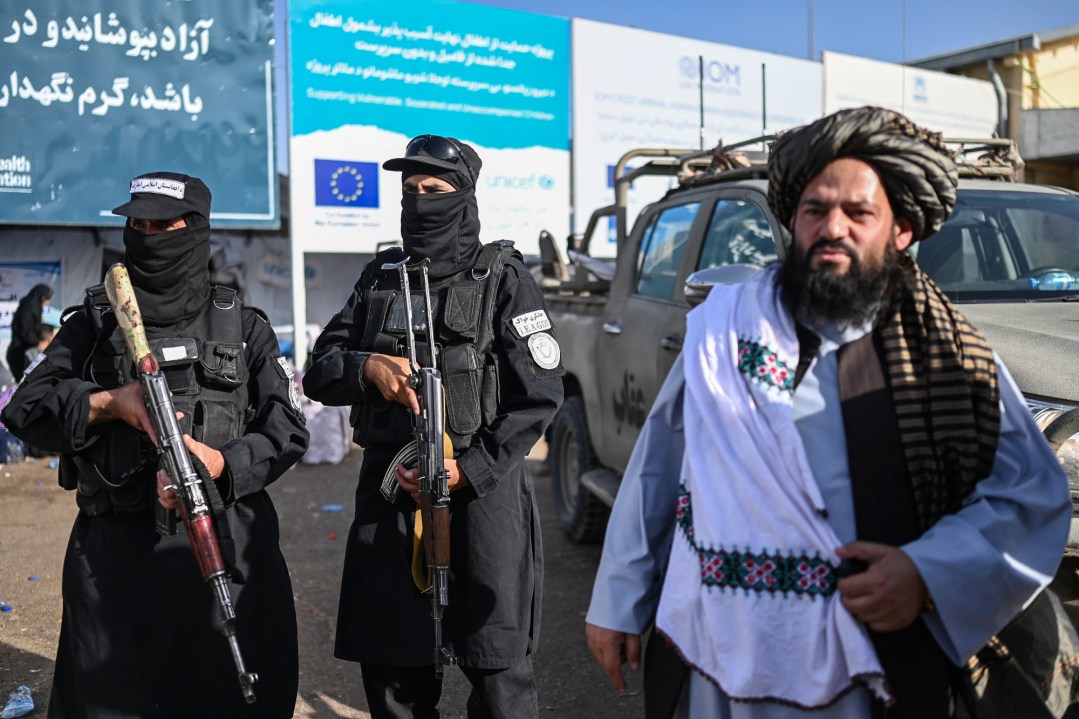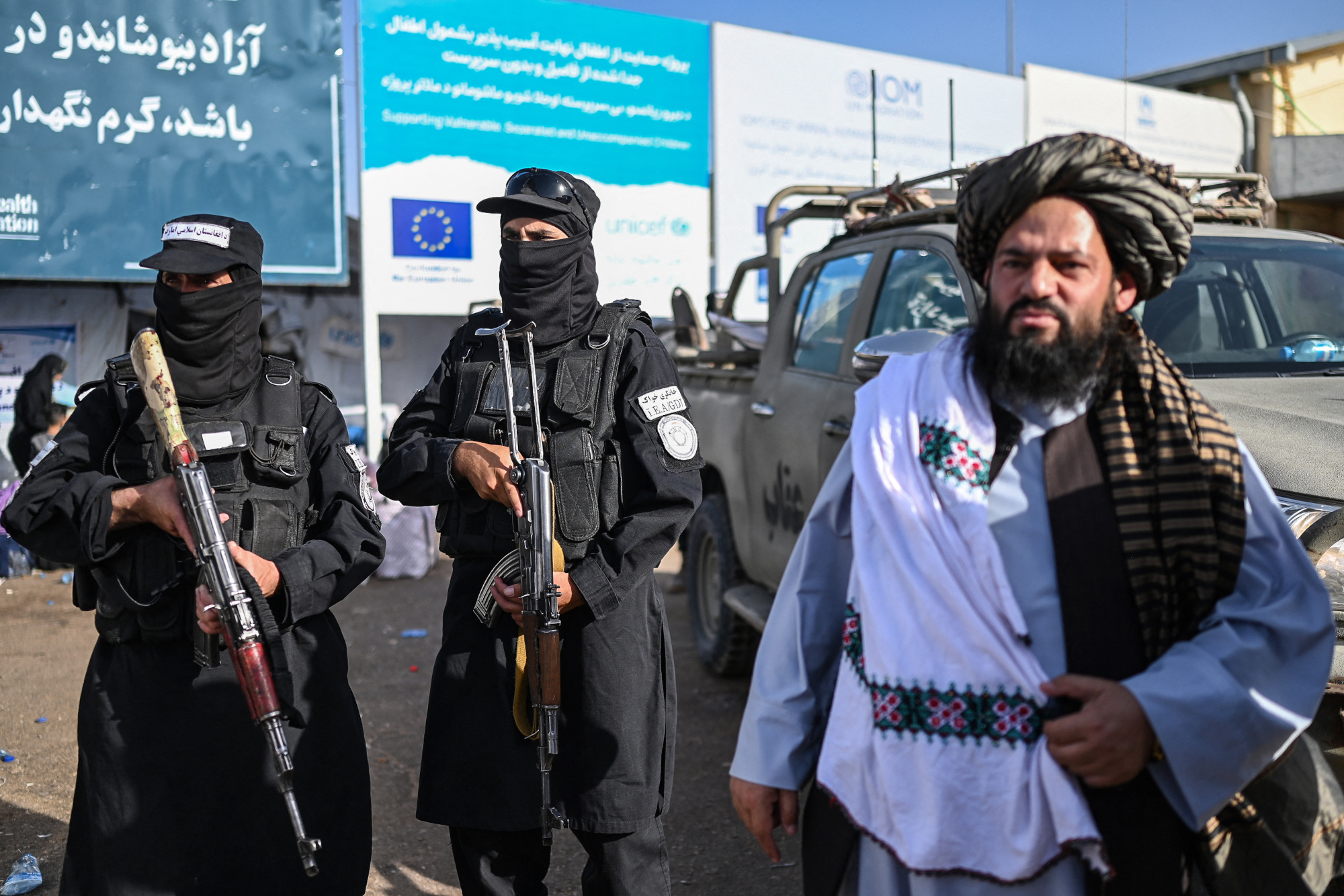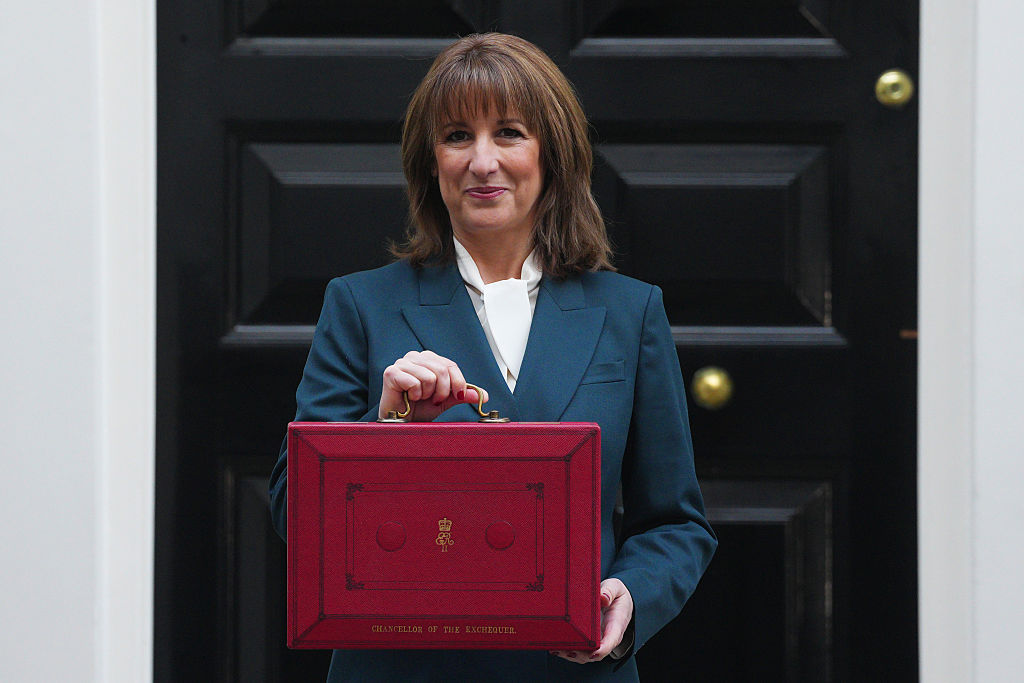Britain and other western nations have abandoned the women of Afghanistan in pursuit of a UN programme of engagement with the Taliban that has demonstrably failed. For the fourth time since the Taliban takeover in August 2021 representatives of the few countries that still have an Afghan policy met the Taliban again in Doha last week. The UN plan is to engage the Taliban to encourage them to ease lives for women, and move towards wider political representation. But instead the Taliban have doubled down since the last Doha meeting. They are refusing to talk to the political opposition, and have imposed a new law that enshrines the 100 restrictions they have already placed on women – including intimate tests of primary school girls for signs of puberty, closure of public parks and leisure facilities to women, closure of beauty salons and women-run businesses, and banning women from leaving home without a male ‘guardian’.
Instead of insisting that these issues should be on the table, the UN meekly accepted the Taliban’s narrow agenda in Doha of economic development and stopping the heroin trade. Once again there were no Afghans in the room other than the Taliban, who represent a small minority of just one of Afghanistan’s many tribal and ethnic communities.
Afghan women say those countries who talk to the Taliban are ‘complicit’ in the daily humiliation they face. They are defiant. ‘Afghan women will not be erased,’ was the statement from one activist group. ‘We will continue to fight for our rights and our future.’ But this is becoming increasingly hard to do as western countries, including Britain, have cut support for women’s groups that are attempting to build resilience inside the country, the only aid that actually delivers any change.
During the 20 years of the Afghan republic before the Taliban returned to power the UN were a fierce critic of backsliding on women’s rights. Now they are failing to do the same when the situation for women is so much worse. Why should the UN stay open in Kabul if it is a Taliban lapdog? They do have a role in managing most of the limited aid that still goes in for basic needs, but there is a strong argument for cutting this aid. The Taliban have become adept at channelling it to their people, creating hundreds of fake NGOs that distribute the cash. And the aid flows are small compared to the direct remittances from relatives abroad to family members in Afghanistan, which are a far more important factor in stabilising the weak Afghan economy. The aid flows give the Taliban an excuse not to provide for basic social needs so they can spend money on security.
The failed UN Doha process was designed to provide a pathway towards recognition of the Taliban. Last week, Russia became tired of waiting. They had kept their mission open in Kabul when the Taliban took power in 2021, and have now become the first country to formally recognise the Taliban, exchanging ambassadors in a new axis of evil.
There are other ways of dealing with this situation. I have argued here and elsewhere that if there is to be an inclusive government, then there cannot be any negotiation without work to shape the opposition to the Taliban, and that needs international support. There are a number of different political initiatives to try to deliver a coherent opposition – the most mature being the Vienna Process – but they are poorly funded, and without international sponsorship the Afghan opposition risks becoming atomised into dozens of different fragments. If there were a coherent political opposition, with a road map back to democratic government, that would make it far easier to insist that the Taliban engage in negotiations.
The alternative, which is becoming more likely, is for there to be conflict. There is growing internal opposition to the Taliban, with increased disruption as both Pakistan and Iran have pushed back millions of refugees over the border. Iran increased the pressure on Afghan refugees last week, expelling hundreds of thousands across the desert frontier, alleging they supported Israeli intelligence Mossad in the 12-day war. Among those refugees are thousands of former members of the Afghan security forces, a potential fighting force. There are two armed groups currently fighting limited local campaigns, and there are others planning a more organised mobilisation of Afghan forces to fight against the Taliban. They do not need international boots on the ground, but they do need political cover and some cash. A coherent western policy towards Afghanistan would take account of this reality.
It is becoming urgent to do something other than the current failed approach. It is not just the lives of women that have been cut down by the Taliban. A generation of young Afghan men are being educated in extremist madrassas that are little more than terrorist training camps. The Taliban’s hold on information is becoming increasingly sophisticated online, where they have created fake women (as they are so frightened of the real thing) that appear to praise the Taliban. One open source intelligence tracker found that most of those accounts appear to come from regions in the country which are the most anti-Taliban.
There is plenty of credible international reporting which shows that the Taliban are now hosting several international terrorist groups, and are the global headquarters of al-Qaeda. The last time Afghanistan was ignored, in the late 1990s when the Taliban were in power, we know how that ended – with a failed state and 9/11. With the talks in Doha, we risk making the same mistake again.









Comments